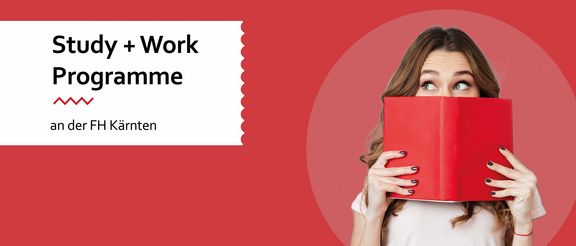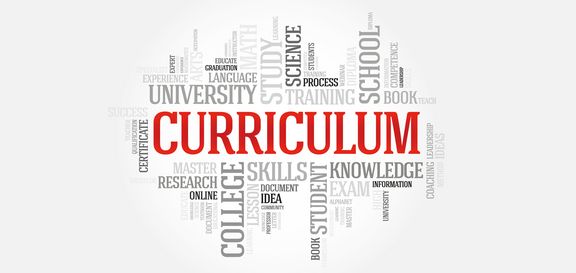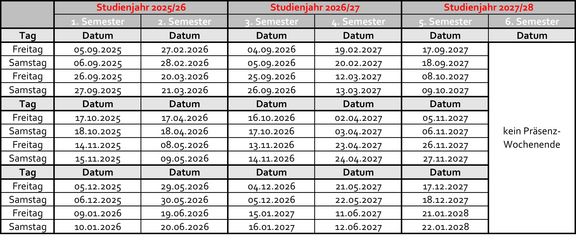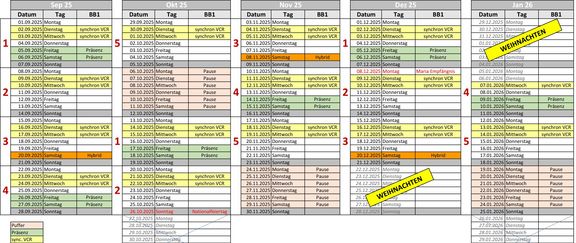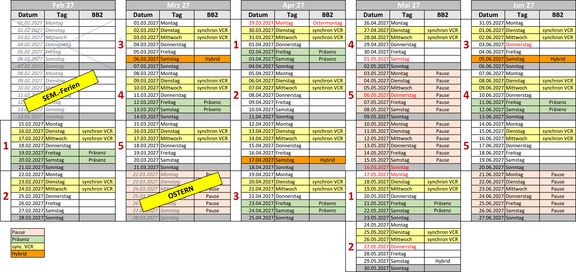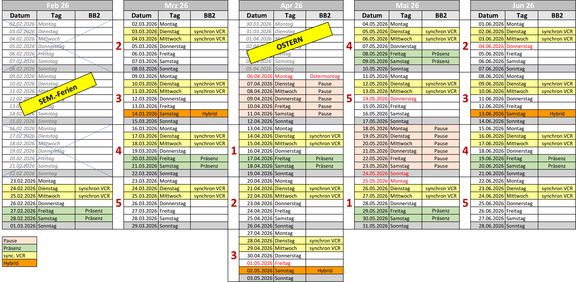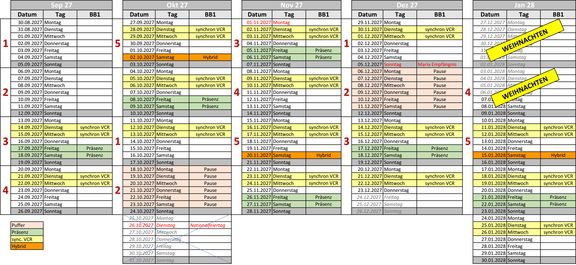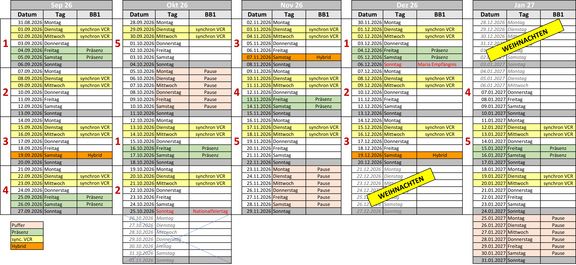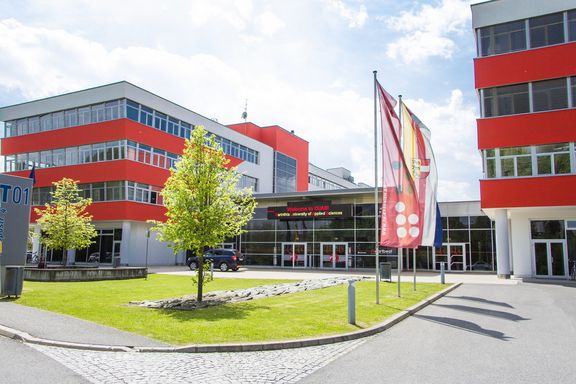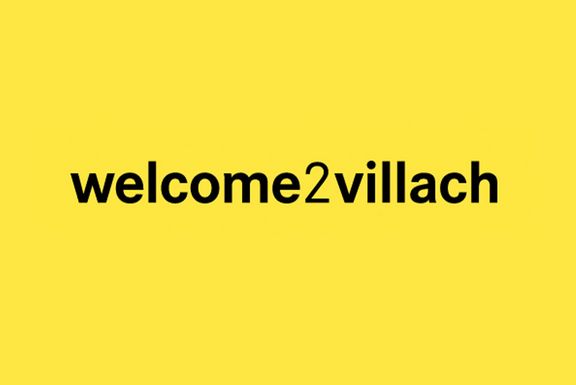Bachelor Degree Program Management
Study Program Digital Tax & Accounting (part-time)
Academic training for the profession of tax consultants and accountants
Using digitalization of processes and procedures effectively, thinking analytically and systematically, looking after and advising demanding clients - specialists in tax consulting and accounting offices face a wide variety of professional challenges every day.
Innovative range of courses in cooperation with the "Akademie der Steuerberater & Wirtschaftsprüfer"
The new study branch Digital Tax & Accounting is an innovative study offer for qualification in a core area of the economy, which was developed in cooperation with the "Akademie der Steuerberater & Wirtschaftsprüfer". The program is characterized by the training of qualified employees who take on responsible, job-specific tasks in the economy, especially in tax consulting and auditing firms. It is becoming increasingly important to have solid qualifications in the field of "digitalization". This requirement is justified by the special market requirements and development opportunities that result from digitization in the fields of tax and accounting.
Study & Job
Ambitious high school graduates are offered the opportunity to combine studies with a job. With the study program Digital Tax & Accounting you start an academic education and have the opportunity to work in one of the top tax consulting and accounting offices in Carinthia right from the start. You can find detailed information HERE.

Information
Contact
Please contact us if you have any questions about your studies:
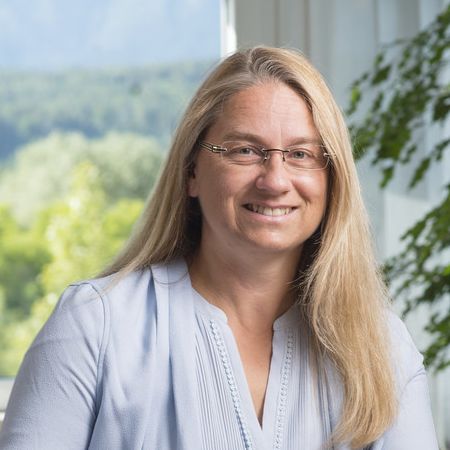
Program Director

Bachelor
180.00
€ 363.36 / semester
- Bachelor of Arts in Business
6 semester
€ 25.20 / semester
German
- Villach
General Study Information
Study + Work
With over 100 Study & Work partner companies and organizations, CUAS offers students the opportunity to combine studying and working!
Study & Work for full-time students
- Extent of employment: marginally up to 8h / week possible
- Timetable: Some degree courses are organized so that Monday is a day off.
Study & Work for part-time students
- Scope of employment: part-time up to max. 20h / week possible
- The timetable is organized in a work-friendly way (lectures at the end of the day, weekend, blocked or online).
Profile
Digital Tax & Accounting is a branch of study within the bachelor's program in economics, which combines basic knowledge of business administration with practical know-how. It is positioned at the interface between the areas of Tax & Accounting and Digitalization. The focus is on the following modularly structured subject areas:
- IT & Organization - Data Management
- Digitalization of processes
- IT Law & Security
- Business Information Systems
- Data analytics
- Value Added Tax & Federal Fiscal Code
- Income tax law & cash accounting
- Personnel Accounting
- Corporate law and accounting
- General Management
Close contacts to the business world give students deep insights into professional practice. Compulsory internships take place under the supervision of the lecturers to ensure the best possible success of the students in their working life.
What students should bring to their studies:
- Interest in economic and digital topics.
- The ability to work in teams
- Language and communication skills.
- Responsible behaviour.
- analytical and systemic thinking
- Interest in innovative technologies.
After successful completion of their studies, graduates have the following skills and knowledge:
Graduates in this field of study will deal with tax returns and annual financial statements in addition to payroll and financial accounting. Graduates of the bachelor's program in "Management" with a focus on "Digital Tax & Accounting" are also expected to be able to
- effectively apply the possibilities of digitalizing processes and procedures in accounting,
- develop, implement and use concepts for the use of digital transactions with clients and tax authorities
- to support demanding clients of tax consulting and auditing firms and to prepare complex consultations with regard to content.
Current courses - Management
| Lecture | Type | SPPS | ECTS-Credits | Course number |
|---|---|---|---|---|
| Student Orientation Program Group 1 | ILV | 0,6 | 1,0 | B4.06360.10.020 |
| Student Orientation Program Group 2 | ILV | 0,6 | 1,0 | B4.06360.10.020 |
| Student Orientation Program Group 3 | ILV | 0,6 | 1,0 | B4.06360.10.020 |
| Student Orientation Program Group 4 | ILV | 0,6 | 1,0 | B4.06360.10.020 |
| Business Software Group I | ILV | 2,0 | 3,0 | B4.06360.10.070 |
| Business Software Group II | ILV | 2,0 | 3,0 | B4.06360.10.070 |
| Business Software Group III | ILV | 2,0 | 3,0 | B4.06360.10.070 |
| English: Persuasive Self-Presentation Group 1 | ILV | 0,8 | 1,0 | B4.06360.10.051 |
| English: Persuasive Self-Presentation Group 2 | ILV | 0,8 | 1,0 | B4.06360.10.051 |
| English: Persuasive Self-Presentation Group 3 | ILV | 0,8 | 1,0 | B4.06360.10.051 |
| English: Persuasive Self-Presentation Group 4 | ILV | 0,8 | 1,0 | B4.06360.10.051 |
| English: Persuasive Self-Presentation Group 5 | ILV | 0,8 | 1,0 | B4.06360.10.051 |
| English: Persuasive Self-Presentation Group 6 | ILV | 0,8 | 1,0 | B4.06360.10.051 |
| Fundamentals of Accounting Group A | ILV | 3,0 | 5,0 | B4.06360.10.010 |
| Fundamentals of Accounting Group B | ILV | 3,0 | 5,0 | B4.06360.10.010 |
| Internet & Web Technology Group I | ILV | 1,0 | 2,0 | B4.06360.10.080 |
| Internet & Web Technology Group II | ILV | 1,0 | 2,0 | B4.06360.10.080 |
| Internet & Web Technology Group III | ILV | 1,0 | 2,0 | B4.06360.10.080 |
| Sustainability, Diversity & Business Ethics Group A | ILV | 3,0 | 5,0 | B4.06360.10.090 |
| Sustainability, Diversity & Business Ethics Group B | ILV | 3,0 | 5,0 | B4.06360.10.090 |
| HR & Organization Group I | ILV | 3,0 | 5,0 | B4.06360.10.060 |
| HR & Organization Group II | ILV | 3,0 | 5,0 | B4.06360.10.060 |
| HR & Organization Group III | ILV | 3,0 | 5,0 | B4.06360.10.060 |
| Personal Development Skills Group I | ILV | 0,9 | 1,5 | B4.06360.10.040 |
| Personal Development Skills Group II | ILV | 0,9 | 1,5 | B4.06360.10.040 |
| Personal Development Skills Group III | ILV | 0,9 | 1,5 | B4.06360.10.040 |
| Collaboration & Cooperation Group I | ILV | 0,9 | 1,5 | B4.06360.10.030 |
| Collaboration & Cooperation Group II | ILV | 0,9 | 1,5 | B4.06360.10.030 |
| Collaboration & Cooperation Group III | ILV | 0,9 | 1,5 | B4.06360.10.030 |
| Study program: Business Management | Type | SPPS | ECTS-Credits | Course number |
| Graphic Design Group A | ILV | 3,0 | 5,0 | B4.06360.10.100 |
| Graphic Design Group B | ILV | 3,0 | 5,0 | B4.06360.10.100 |
| Study program: Digital Business Management | Type | SPPS | ECTS-Credits | Course number |
| Media & Internet (video, picture, text) | ILV | 1,0 | 2,0 | B4.06361.10.190 |
| Webcontent Management | ILV | 1,0 | 1,5 | B4.06361.10.210 |
| Webdesign and CMS (Content Management System) | ILV | 1,0 | 1,5 | B4.06361.10.200 |
| Study program: Digital Tax and Accounting | Type | SPPS | ECTS-Credits | Course number |
| Digital interfaces | ILV | 1,2 | 2,0 | B4.06366.10.170 |
| ERP-Customizing | ILV | 0,6 | 1,0 | B4.06366.10.160 |
| Workflow-Management-Systems | ILV | 1,2 | 2,0 | B4.06366.10.180 |
| Study program: Public Management | Type | SPPS | ECTS-Credits | Course number |
| Fundamentals of politics | ILV | 1,0 | 1,7 | B4.06363.10.240 |
| Fundamentals of public law | ILV | 1,0 | 1,6 | B4.06363.10.230 |
| Fundamentals of public sector | ILV | 1,0 | 1,7 | B4.06363.10.250 |
| Lecture | Type | SPPS | ECTS-Credits | Course number |
|---|---|---|---|---|
| English: Current Trend Analysis Group 1 | ILV | 0,7 | 1,0 | B4.06360.30.041 |
| English: Current Trend Analysis Group 2 | ILV | 0,7 | 1,0 | B4.06360.30.041 |
| English: Current Trend Analysis Group 3 | ILV | 0,7 | 1,0 | B4.06360.30.041 |
| English: Current Trend Analysis Group 4 | ILV | 0,7 | 1,0 | B4.06360.30.041 |
| Fundamentals of Empirical Social Research I Group A | ILV | 0,3 | 0,5 | B4.06360.30.020 |
| Fundamentals of Empirical Social Research I Group B | ILV | 0,3 | 0,5 | B4.06360.30.020 |
| Research Skills I Group A | ILV | 1,0 | 1,5 | B4.06360.30.010 |
| Research Skills I Group B | ILV | 1,0 | 1,5 | B4.06360.30.010 |
| Statistics I Group A | ILV | 2,0 | 3,0 | B4.06360.30.030 |
| Statistics I Group B | ILV | 2,0 | 3,0 | B4.06360.30.030 |
| Study program: Business Management | Type | SPPS | ECTS-Credits | Course number |
| Introduction to Strategic Controlling | ILV | 1,2 | 4,0 | B4.06364.30.320 |
| Employee Lifecycle | ILV | 3,2 | 12,0 | B4.06364.30.240 |
| English: Writing Business Reports Group A | ILV | 0,5 | 1,0 | B4.06364.30.231 |
| English: Writing Business Reports Group B | ILV | 0,5 | 1,0 | B4.06364.30.231 |
| ERP/SAP: Procurement Management Group A | ILV | 1,0 | 2,0 | B4.06364.30.220 |
| ERP/SAP: Procurement Management Group B | ILV | 1,0 | 2,0 | B4.06364.30.220 |
| Fundamentals of economics I: Microeconomics Group A | ILV | 1,9 | 3,5 | B4.06360.30.050 |
| Fundamentals of economics I: Microeconomics Group B | ILV | 1,9 | 3,5 | B4.06360.30.050 |
| Instruments of Strategic Controlling | ILV | 2,5 | 8,0 | B4.06364.30.330 |
| Logistics Management | ILV | 1,2 | 4,0 | B4.06364.30.290 |
| Modelling of business processes | ILV | 1,5 | 3,0 | B4.06364.30.210 |
| Public commercial law Group I | ILV | 1,3 | 2,5 | B4.06360.30.060 |
| Public commercial law Group II | ILV | 1,3 | 2,5 | B4.06360.30.060 |
| Public commercial law Group III | ILV | 1,3 | 2,5 | B4.06360.30.060 |
| Quality Management | ILV | 1,2 | 4,0 | B4.06364.30.310 |
| Supply Chain Management | ILV | 1,2 | 4,0 | B4.06364.30.300 |
| Study program: Digital Business Management | Type | SPPS | ECTS-Credits | Course number |
| Application Development | ILV | 2,0 | 3,5 | B4.06361.30.150 |
| Procurement Management | ILV | 1,5 | 2,0 | B4.06361.30.070 |
| English for Digital Business Management II | ILV | 0,6 | 1,0 | B4.06361.30.141 |
| English: Writing Business Reports | ILV | 0,7 | 1,0 | B4.06361.30.101 |
| E-Procurement | ILV | 0,9 | 1,5 | B4.06361.30.120 |
| ERP/SAP: Procurement Management | ILV | 0,7 | 1,0 | B4.06361.30.090 |
| Fundamentals of economics I: Microeconomics Group A | ILV | 1,9 | 3,5 | B4.06360.30.050 |
| Fundamentals of economics I: Microeconomics Group B | ILV | 1,9 | 3,5 | B4.06360.30.050 |
| Fundamentals of E-Business and E-Commerce | ILV | 0,9 | 1,5 | B4.06361.30.110 |
| Modelling of business processes | ILV | 1,5 | 2,0 | B4.06361.30.080 |
| Public commercial law Group I | ILV | 1,3 | 2,5 | B4.06360.30.060 |
| Public commercial law Group II | ILV | 1,3 | 2,5 | B4.06360.30.060 |
| Public commercial law Group III | ILV | 1,3 | 2,5 | B4.06360.30.060 |
| Webservices | ILV | 1,4 | 2,5 | B4.06361.30.160 |
| Webshop Systems | ILV | 1,2 | 2,0 | B4.06361.30.130 |
| Study program: Digital Tax and Accounting | Type | SPPS | ECTS-Credits | Course number |
| Federal Tax Code | ILV | 1,3 | 2,0 | B4.06366.30.330 |
| Income and Expenditure Accounting | ILV | 2,0 | 3,0 | B4.06366.30.350 |
| English for General Management | ILV | 0,7 | 1,0 | B4.06364.30.141 |
| Fundamentals of economics I: Microeconomics Group A | ILV | 1,9 | 3,5 | B4.06360.30.050 |
| Fundamentals of economics I: Microeconomics Group B | ILV | 1,9 | 3,5 | B4.06360.30.050 |
| Fundamentals of Tax Law | ILV | 2,0 | 3,0 | B4.06366.30.340 |
| Employee Management | ILV | 1,4 | 2,0 | B4.06364.30.130 |
| Public commercial law Group I | ILV | 1,3 | 2,5 | B4.06360.30.060 |
| Public commercial law Group II | ILV | 1,3 | 2,5 | B4.06360.30.060 |
| Public commercial law Group III | ILV | 1,3 | 2,5 | B4.06360.30.060 |
| Value Added Tax | ILV | 2,7 | 4,0 | B4.06366.30.320 |
| Corporate Management | ILV | 2,0 | 3,0 | B4.06364.30.120 |
| Study program: Public Management | Type | SPPS | ECTS-Credits | Course number |
| Procurement Management | ILV | 1,5 | 2,0 | B4.06363.30.070 |
| Theories of Democracy & Models of Democracy | ILV | 1,9 | 3,0 | B4.06363.30.190 |
| E-Government | ILV | 1,6 | 3,0 | B4.06363.30.170 |
| English: Writing Business Reports | ILV | 0,7 | 1,0 | B4.06363.30.101 |
| ERP/SAP: Procurement Management | ILV | 0,7 | 1,0 | B4.06363.30.090 |
| Society in Change | ILV | 1,9 | 3,0 | B4.06363.30.200 |
| Fundamentals of economics I: Microeconomics Group A | ILV | 1,9 | 3,5 | B4.06360.30.050 |
| Fundamentals of economics I: Microeconomics Group B | ILV | 1,9 | 3,5 | B4.06360.30.050 |
| Modelling of business processes | ILV | 1,5 | 2,0 | B4.06363.30.080 |
| Public commercial law Group I | ILV | 1,3 | 2,5 | B4.06360.30.060 |
| Public commercial law Group II | ILV | 1,3 | 2,5 | B4.06360.30.060 |
| Public commercial law Group III | ILV | 1,3 | 2,5 | B4.06360.30.060 |
| Administrative Law | ILV | 1,6 | 3,0 | B4.06363.30.180 |
| Study program: Business Management | Type | SPPS | ECTS-Credits | Course number |
|---|---|---|---|---|
| Business Analytics | ILV | 1,8 | 3,0 | B4.06364.50.230 |
| Change Management | ILV | 1,2 | 2,0 | B4.06364.50.240 |
| English for General Management | ILV | 0,7 | 1,0 | B4.06364.50.291 |
| Digital Business Basics | ILV | 1,2 | 2,0 | B4.06364.50.260 |
| Lean Manufacturing | ILV | 1,8 | 6,0 | B4.06364.50.360 |
| Learning & Development | ILV | 3,2 | 12,0 | B4.06364.50.220 |
| Brand Management | ILV | 3,3 | 12,0 | B4.06364.70.260 |
| Market research | ILV | 1,8 | 3,0 | B4.06364.50.240 |
| Employee Management | ILV | 1,4 | 2,0 | B4.06364.50.280 |
| Production Management | ILV | 1,2 | 4,0 | B4.06364.50.350 |
| Service Management | ILV | 1,2 | 2,0 | B4.06364.50.250 |
| Smart Factory/Industry 4.0 | ILV | 0,6 | 2,0 | B4.06364.50.370 |
| Corporate Management | ILV | 2,0 | 3,0 | B4.06364.50.270 |
| Study program: Digital Business Management | Type | SPPS | ECTS-Credits | Course number |
| Analysis & Optimization | ILV | 0,7 | 1,0 | B4.06361.50.060 |
| Data Protection | ILV | 1,2 | 2,0 | B4.06361.50.070 |
| Digital Processes | ILV | 1,2 | 2,0 | B4.06361.50.090 |
| English for Digital Business Management III | ILV | 0,7 | 1,0 | B4.06361.50.071 |
| Information Economy | ILV | 1,2 | 2,0 | B4.06361.50.100 |
| Internet & Media Law | ILV | 1,2 | 2,0 | B4.06361.50.020 |
| IT Security | ILV | 1,2 | 2,0 | B4.06361.50.030 |
| Campaign Management / SEO & SEA | ILV | 1,3 | 2,0 | B4.06361.50.050 |
| Project seminar | ILV | 2,8 | 5,0 | B4.06361.50.110 |
| Digital Business Seminar | ILV | 0,6 | 1,0 | B4.06361.50.120 |
| Smart Factory | ILV | 1,2 | 2,0 | B4.06361.50.080 |
| Strategy & Digital Marketing | ILV | 1,3 | 2,0 | B4.06361.50.040 |
| Study program: Public Management | Type | SPPS | ECTS-Credits | Course number |
| Actors and Instruments of Economic Policy | ILV | 1,2 | 2,0 | B4.06363.50.130 |
| Controlling in the Public Sector | ILV | 1,2 | 2,0 | B4.06363.50.190 |
| Introduction to Political Communication | ILV | 1,2 | 2,0 | B4.06363.50.140 |
| English for Public Management III | ILV | 0,6 | 1,0 | B4.06363.50.161 |
| English for Public Management IV | ILV | 0,7 | 1,0 | B4.06363.50.181 |
| Fundamentals of Intercultural Communication | ILV | 0,6 | 1,0 | B4.06363.50.150 |
| Fundamentals of Public Finance | ILV | 1,8 | 2,5 | B4.06363.50.160 |
| Fundamentals of Public Service Law | ILV | 1,2 | 2,0 | B4.06363.50.210 |
| Leadership and Personnel in the Public Sector | ILV | 1,2 | 2,0 | B4.06363.50.200 |
| Management of Public Enterprises | ILV | 1,8 | 3,0 | B4.06363.50.230 |
| Non Profit Organizations | ILV | 1,8 | 3,0 | B4.06363.50.220 |
| Public Budgeting | ILV | 1,8 | 2,5 | B4.06363.50.170 |
| Lecture | Type | SPPS | ECTS-Credits | Course number |
|---|---|---|---|---|
| Controlling Group I | ILV | 1,0 | 2,0 | B4.06360.20.270 |
| Controlling Group II | ILV | 1,0 | 2,0 | B4.06360.20.270 |
| Controlling Group III | ILV | 1,0 | 2,0 | B4.06360.20.270 |
| English: Reading in Context Group 1 | ILV | 0,8 | 1,0 | B4.06360.20.301 |
| English: Reading in Context Group 2 | ILV | 0,8 | 1,0 | B4.06360.20.301 |
| English: Reading in Context Group 3 | ILV | 0,8 | 1,0 | B4.06360.20.301 |
| English: Reading in Context Group 4 | ILV | 0,8 | 1,0 | B4.06360.20.301 |
| English: Reading in Context Group 5 | ILV | 0,8 | 1,0 | B4.06360.20.301 |
| English: Reading in Context Group 6 | ILV | 0,8 | 1,0 | B4.06360.20.301 |
| Fundamentals of Business Law Group I | ILV | 3,0 | 5,0 | B4.06360.20.310 |
| Fundamentals of Business Law Group II | ILV | 3,0 | 5,0 | B4.06360.20.310 |
| Fundamentals of Business Law Group III | ILV | 3,0 | 5,0 | B4.06360.20.310 |
| Collaborative Work Group I | ILV | 3,0 | 5,0 | B4.06364.20.320 |
| Collaborative Work Group II | ILV | 3,0 | 5,0 | B4.06364.20.320 |
| Collaborative Work Group III | ILV | 3,0 | 5,0 | B4.06364.20.320 |
| Cost Accounting Group I | ILV | 2,0 | 3,0 | B4.06360.20.260 |
| Cost Accounting Group II | ILV | 2,0 | 3,0 | B4.06360.20.260 |
| Cost Accounting Group III | ILV | 2,0 | 3,0 | B4.06360.20.260 |
| Marketing & Sales Group I | ILV | 3,0 | 5,0 | B4.06360.20.280 |
| Marketing & Sales Group II | ILV | 3,0 | 5,0 | B4.06360.20.280 |
| Marketing & Sales Group III | ILV | 3,0 | 5,0 | B4.06360.20.280 |
| Scientific Work & Writing Group I | ILV | 2,4 | 4,0 | B4.06360.20.290 |
| Scientific Work & Writing Group II | ILV | 2,4 | 4,0 | B4.06360.20.290 |
| Scientific Work & Writing Group III | ILV | 2,4 | 4,0 | B4.06360.20.290 |
| Study program: Business Management | Type | SPPS | ECTS-Credits | Course number |
| Enterprise Resource Planning Systems (ERP-Systems) Group A | ILV | 3,0 | 5,0 | B4.06364.20.330 |
| Enterprise Resource Planning Systems (ERP-Systems) Group B | ILV | 3,0 | 5,0 | B4.06364.20.330 |
| Study program: Digital Business Management | Type | SPPS | ECTS-Credits | Course number |
| Fundamentals of Digital Business Management | ILV | 3,0 | 5,0 | B4.06361.20.380 |
| Study program: Digital Tax and Accounting | Type | SPPS | ECTS-Credits | Course number |
| Group Accounting | ILV | 0,9 | 1,5 | B4.06366.20.370 |
| Austrian Commercial Code (UGB) & Accounting | ILV | 2,1 | 3,5 | B4.06366.20.360 |
| Study program: Public Management | Type | SPPS | ECTS-Credits | Course number |
| Grundlagen des öffentlichen Dienstrechts | ILV | 1,0 | 2,0 | B4.06363.20.420 |
| Public Management | ILV | 2,0 | 3,0 | B4.06363.20.410 |
| Lecture | Type | SPPS | ECTS-Credits | Course number |
|---|---|---|---|---|
| English: Academic English Group 1 | ILV | 0,7 | 1,0 | B4.06360.40.091 |
| English: Academic English Group 2 | ILV | 0,7 | 1,0 | B4.06360.40.091 |
| English: Academic English Group 3 | ILV | 0,7 | 1,0 | B4.06360.40.091 |
| English: Academic English Group 4 | ILV | 0,7 | 1,0 | B4.06360.40.091 |
| European Law Group A | ILV | 1,8 | 2,5 | B4.06360.40.080 |
| European Law Group B | ILV | 1,8 | 2,5 | B4.06360.40.080 |
| Fundamentals of Empirical Social Research II Group A | ILV | 1,5 | 2,5 | B4.06360.40.020 |
| Fundamentals of Empirical Social Research II Group B | ILV | 1,5 | 2,5 | B4.06360.40.020 |
| Fundamentals of economics II: Macroeconomics Group A | ILV | 1,8 | 2,5 | B4.06360.40.070 |
| Fundamentals of economics II: Macroeconomics Group B | ILV | 1,8 | 2,5 | B4.06360.40.070 |
| Research Skills II Group A | ILV | 0,9 | 1,5 | B4.06360.40.010 |
| Research Skills II Group B | ILV | 0,9 | 1,5 | B4.06360.40.010 |
| Statistics II Group A | ILV | 1,2 | 2,0 | B4.06360.40.030 |
| Statistics II Group B | ILV | 1,2 | 2,0 | B4.06360.40.030 |
| Study program: Business Management | Type | SPPS | ECTS-Credits | Course number |
| Balance Sheet Analsyis | ILV | 1,2 | 2,0 | B4.06360.40.170 |
| English for Globalization & international Business Group A | ILV | 0,6 | 1,0 | B4.06364.40.221 |
| English for Globalization & international Business Group B | ILV | 0,6 | 1,0 | B4.06364.40.221 |
| Export & international economy | ILV | 1,6 | 2,5 | B4.06364.40.200 |
| Fundamentals of international business | ILV | 1,6 | 2,5 | B4.06364.40.210 |
| Investment & Financing II | ILV | 1,2 | 2,0 | B4.06360.40.190 |
| Project management Group A | ILV | 3,2 | 4,0 | B4.06360.40.040 |
| Project management Group B | ILV | 3,2 | 4,0 | B4.06360.40.040 |
| Project management systems Group A | ILV | 0,8 | 1,0 | B4.06360.40.050 |
| Project management systems Group B | ILV | 0,8 | 1,0 | B4.06360.40.050 |
| Project supervision Group A | ILV | 0,8 | 1,0 | B4.06360.40.060 |
| Project supervision Group B | ILV | 0,8 | 1,0 | B4.06360.40.060 |
| Tax law | ILV | 1,2 | 2,0 | B4.06360.40.180 |
| Study program: Digital Business Management | Type | SPPS | ECTS-Credits | Course number |
| Introduction BI & Analytics | ILV | 1,2 | 2,0 | B4.06361.40.130 |
| Introduction Data Engineering | ILV | 1,2 | 2,0 | B4.06361.40.120 |
| Introduction Data Value Chain | ILV | 1,2 | 2,0 | B4.06361.40.110 |
| Fundamentals of Controlling | ILV | 2,1 | 3,0 | B4.06360.40.100 |
| Cost Accounting | ILV | 2,1 | 3,0 | B4.06360.40.090 |
| Project management Group A | ILV | 3,2 | 4,0 | B4.06360.40.040 |
| Project management Group B | ILV | 3,2 | 4,0 | B4.06360.40.040 |
| Project management systems Group A | ILV | 0,8 | 1,0 | B4.06360.40.050 |
| Project management systems Group B | ILV | 0,8 | 1,0 | B4.06360.40.050 |
| Project supervision Group A | ILV | 0,8 | 1,0 | B4.06360.40.060 |
| Project supervision Group B | ILV | 0,8 | 1,0 | B4.06360.40.060 |
| Study program: Digital Tax and Accounting | Type | SPPS | ECTS-Credits | Course number |
| Introduction Data Engineering | ILV | 1,2 | 2,0 | B4.06366.40.280 |
| Introduction Data Value Chain | ILV | 1,2 | 2,0 | B4.06366.40.270 |
| Introduction BI & Analytics | ILV | 1,2 | 2,0 | B4.06366.40.290 |
| Corporate Code & Accounting | ILV | 4,0 | 6,0 | B4.06366.40.260 |
| Study program: Public Management | Type | SPPS | ECTS-Credits | Course number |
| English for Public Management II | ILV | 0,7 | 1,0 | B4.06363.40.161 |
| Fundamentals of Controlling | ILV | 2,1 | 3,0 | B4.06360.40.100 |
| Cost Accounting | ILV | 2,1 | 3,0 | B4.06360.40.090 |
| Comparison of Political Systems | ILV | 1,7 | 2,5 | B4.06363.40.140 |
| Project management Group A | ILV | 3,2 | 4,0 | B4.06360.40.040 |
| Project management Group B | ILV | 3,2 | 4,0 | B4.06360.40.040 |
| Project management systems Group A | ILV | 0,8 | 1,0 | B4.06360.40.050 |
| Project management systems Group B | ILV | 0,8 | 1,0 | B4.06360.40.050 |
| Project supervision Group A | ILV | 0,8 | 1,0 | B4.06360.40.060 |
| Project supervision Group B | ILV | 0,8 | 1,0 | B4.06360.40.060 |
| Comparison of selected policy fields | ILV | 1,7 | 2,5 | B4.06363.40.150 |
| Lecture | Type | SPPS | ECTS-Credits | Course number |
|---|---|---|---|---|
| Bachelor Thesis and Bachelor Colloquium | BT | 1,0 | 10,0 | B4.06360.60.010 |
| Study program: Business Management | Type | SPPS | ECTS-Credits | Course number |
| Business plan preparation | ILV | 2,8 | 6,0 | B4.06364.60.090 |
| English for Financing Forms | ILV | 0,7 | 1,0 | B4.06364.60.121 |
| New Financing Forms | ILV | 1,7 | 2,5 | B4.06364.60.100 |
| Legal Foundations of Financing | ILV | 1,7 | 2,5 | B4.06364.60.110 |
| Study program: Digital Business Management | Type | SPPS | ECTS-Credits | Course number |
| Balance Sheet Analsyis | ILV | 1,2 | 2,0 | B4.06360.60.050 |
| Investment & Financing I | ILV | 1,5 | 3,0 | B4.06360.60.030 |
| Investment & Financing II | ILV | 1,2 | 2,0 | B4.06360.60.070 |
| Tax law | ILV | 1,2 | 2,0 | B4.06360.60.060 |
| Financial Mathematics II | ILV | 1,5 | 3,0 | B4.06360.60.040 |
| Study program: Public Management | Type | SPPS | ECTS-Credits | Course number |
| Balance Sheet Analsyis | ILV | 1,2 | 2,0 | B4.06360.60.050 |
| Investment & Financing I | ILV | 1,5 | 3,0 | B4.06360.60.030 |
| Investment & Financing II | ILV | 1,2 | 2,0 | B4.06360.60.070 |
| Tax law | ILV | 1,2 | 2,0 | B4.06360.60.060 |
| Financial Mathematics II | ILV | 1,5 | 3,0 | B4.06360.60.040 |
| Lecture | Type | SPPS | ECTS-Credits | Course number |
|---|---|---|---|---|
| Student Orientation Program | ILV | 0,6 | 1,0 | B4.06360.10.020 |
| Business Software | ILV | 2,0 | 3,0 | B4.06360.10.070 |
| English: Persuasive Self-Presentation | ILV | 0,8 | 1,0 | B4.06360.10.051 |
| Fundamentals of Accounting | ILV | 3,0 | 5,0 | B4.06360.10.010 |
| Internet & Web Technology | ILV | 1,0 | 2,0 | B4.06360.10.080 |
| Sustainability, Diversity & Business Ethics | ILV | 3,0 | 5,0 | B4.06360.10.090 |
| HR & Organization | ILV | 3,0 | 5,0 | B4.06360.10.060 |
| Personal Development Skills | ILV | 0,9 | 1,5 | B4.06360.10.040 |
| Collaboration & Cooperation | ILV | 0,9 | 1,5 | B4.06360.10.030 |
| Study program: Business Management | Type | SPPS | ECTS-Credits | Course number |
| Graphic Design | ILV | 3,0 | 5,0 | B4.06360.10.100 |
| Study program: Digital Business Management | Type | SPPS | ECTS-Credits | Course number |
| Media & Internet (video, picture, text) | ILV | 1,0 | 2,0 | B4.06361.10.190 |
| Webcontent Management | ILV | 1,0 | 1,5 | B4.06361.10.210 |
| Webdesign and CMS (Content Management System) | ILV | 1,0 | 1,5 | B4.06361.10.200 |
| Study program: Digital Tax and Accounting | Type | SPPS | ECTS-Credits | Course number |
| Digital interfaces | ILV | 1,2 | 2,0 | B4.06366.10.170 |
| ERP-Customizing | ILV | 0,6 | 1,0 | B4.06366.10.160 |
| Workflow-Management-Systems | ILV | 1,2 | 2,0 | B4.06366.10.180 |
| Study program: Public Management | Type | SPPS | ECTS-Credits | Course number |
| Fundamentals of politics | ILV | 1,0 | 1,7 | B4.06363.10.240 |
| Fundamentals of public law | ILV | 1,0 | 1,6 | B4.06363.10.230 |
| Fundamentals of public sector | ILV | 1,0 | 1,7 | B4.06363.10.250 |
| Optional subject | Type | SPPS | ECTS-Credits | Course number |
| French I (CEF A1) | ILV | 3,0 | 4,0 | B4.06360.70.320 |
| Italian I (CEF A1) | ILV | 3,0 | 4,0 | B4.06360.70.272 |
| Croatian I | ILV | 3,0 | 4,0 | B4.06360.70.310 |
| Russian I (CEF A1) | ILV | 3,0 | 4,0 | B4.06360.70.280 |
| Slovene I (CEF A1) | ILV | 3,0 | 4,0 | B4.06360.70.300 |
| Spanish I (CEF A1) | ILV | 3,0 | 4,0 | B4.06360.70.290 |
| Lecture | Type | SPPS | ECTS-Credits | Course number |
|---|---|---|---|---|
| Digital Marketing | ILV | 3,0 | 5,0 | B4.06360.30.530 |
| English: Current Trend Analysis | ILV | 0,8 | 1,0 | B4.06360.30.521 |
| English: Writing Reports | ILV | 0,8 | 1,0 | B4.06360.30.501 |
| Research Methods | ILV | 2,4 | 4,0 | B4.06360.30.490 |
| Quantitative Data Analysis | ILV | 2,4 | 4,0 | B4.06360.30.510 |
| Study program: Business Management | Type | SPPS | ECTS-Credits | Course number |
| Bilanzanalyse | ILV | 1,5 | 2,5 | B4.06360.30.540 |
| Operatives Controlling I | ILV | 1,5 | 2,5 | B4.06364.30.590 |
| Operatives Controlling II | ILV | 1,5 | 2,5 | B4.06364.30.600 |
| Self & Employee Management | ILV | 3,0 | 5,0 | B4.06360.30.560 |
| Steuerrecht | ILV | 1,5 | 2,5 | B4.06360.30.550 |
| Study program: Digital Business Management | Type | SPPS | ECTS-Credits | Course number |
| English for B2B Relationship Management | ILV | 0,7 | 1,0 | B4.06361.30.701 |
| English for Software Development & Coding | ILV | 0,8 | 1,0 | B4.06361.30.721 |
| Grundlagen E-Business/E-Commerce/E-Procurement | ILV | 1,5 | 2,5 | B4.06361.30.680 |
| Software Development & Coding | ILV | 5,4 | 9,0 | B4.06361.30.710 |
| Webshopsysteme | ILV | 1,0 | 1,5 | B4.06361.30.690 |
| Study program: Digital Tax and Accounting | Type | SPPS | ECTS-Credits | Course number |
| Bilanzanalyse | ILV | 1,5 | 2,5 | B4.06360.30.540 |
| Einnahmen-Ausgaben-Rechnung | ILV | 1,5 | 2,5 | B4.06366.30.670 |
| Ertragsteuerrecht | ILV | 1,5 | 2,5 | B4.06366.30.660 |
| Fundamentals of European Law | ILV | 1,5 | 2,5 | B4.06360.30.580 |
| Austrian and International Company Law | ILV | 1,5 | 2,5 | B4.06360.30.570 |
| Steuerrecht | ILV | 1,5 | 2,5 | B4.06360.30.550 |
| Study program: Public Management | Type | SPPS | ECTS-Credits | Course number |
| Fundamentals of European Law | ILV | 1,5 | 2,5 | B4.06360.30.580 |
| Austrian and International Company Law | ILV | 1,5 | 2,5 | B4.06360.30.570 |
| Politisches System Österreich und EU | ILV | 2,0 | 3,0 | B4.06363.30.760 |
| Verfassungs- und Verwaltungsrecht | ILV | 3,0 | 5,0 | B4.06363.30.780 |
| Wirtschaftspolitik | ILV | 1,0 | 2,0 | B4.06363.30.770 |
| Optional subject | Type | SPPS | ECTS-Credits | Course number |
| French III | ILV | 2,0 | 2,0 | B4.06360.70.380 |
| Italian III | ILV | 3,0 | 4,0 | B4.06360.70.332 |
| Croatian III | ILV | 2,0 | 2,0 | B4.06360.70.360 |
| Pre-Departure Orientation | ILV | 2,0 | 2,0 | B4.06360.70.390 |
| Russian III | ILV | 3,0 | 4,0 | B4.06360.70.340 |
| Writing with academic context | ILV | 3,7 | 6,0 | B4.06360.30.400 |
| Slovene III | ILV | 3,0 | 4,0 | B4.06360.70.370 |
| Spanish III | ILV | 2,0 | 2,0 | B4.06360.70.350 |
| Lecture | Type | SPPS | ECTS-Credits | Course number |
|---|---|---|---|---|
| Controlling | ILV | 1,0 | 2,0 | B4.06360.20.270 |
| English: Reading in Context | ILV | 0,8 | 1,0 | B4.06360.20.301 |
| Fundamentals of Business Law | ILV | 3,0 | 5,0 | B4.06360.20.310 |
| Collaborative Work | ILV | 3,0 | 5,0 | B4.06364.20.320 |
| Cost Accounting | ILV | 2,0 | 3,0 | B4.06360.20.260 |
| Marketing & Sales | ILV | 3,0 | 5,0 | B4.06360.20.280 |
| Scientific Work & Writing | ILV | 2,4 | 4,0 | B4.06360.20.290 |
| Study program: Business Management | Type | SPPS | ECTS-Credits | Course number |
| Enterprise Resource Planning Systems (ERP-Systems) | ILV | 3,0 | 5,0 | B4.06364.20.330 |
| Study program: Digital Business Management | Type | SPPS | ECTS-Credits | Course number |
| Fundamentals of Digital Business Management | ILV | 3,0 | 5,0 | B4.06361.20.380 |
| Study program: Digital Tax and Accounting | Type | SPPS | ECTS-Credits | Course number |
| Group Accounting | ILV | 0,9 | 1,5 | B4.06366.20.370 |
| Austrian Commercial Code (UGB) & Accounting | ILV | 2,1 | 3,5 | B4.06366.20.360 |
| Study program: Public Management | Type | SPPS | ECTS-Credits | Course number |
| Grundlagen des öffentlichen Dienstrechts | ILV | 1,0 | 2,0 | B4.06363.20.420 |
| Public Management | ILV | 2,0 | 3,0 | B4.06363.20.410 |
| Optional subject | Type | SPPS | ECTS-Credits | Course number |
| French II (CEF A1) | ILV | 3,0 | 4,0 | B4.06360.80.410 |
| Italian II (CEF A1) | ILV | 3,0 | 4,0 | B4.06360.80.362 |
| Croatian II | ILV | 3,0 | 2,0 | B4.06360.80.390 |
| Russian II (CEF A1) | ILV | 3,0 | 4,0 | B4.06360.80.370 |
| Slovene II (CEF A1) | ILV | 3,0 | 4,0 | B4.06360.80.400 |
| Spanish II (CEF A1) | ILV | 3,0 | 4,0 | B4.06360.80.380 |
| Lecture | Type | SPPS | ECTS-Credits | Course number |
|---|---|---|---|---|
| Business Intelligence & Analytics | ILV | 3,0 | 5,0 | B4.06360.40.840 |
| Change Management & Conflict Management | ILV | 2,4 | 4,0 | B4.06360.40.850 |
| English: Communication with Impact | ILV | 0,8 | 1,0 | B4.06360.40.861 |
| Project Management | ILV | 3,0 | 5,0 | B4.06360.40.880 |
| Economics | ILV | 3,0 | 5,0 | B4.06360.40.870 |
| Study program: Business Management | Type | SPPS | ECTS-Credits | Course number |
| Geschäftsprozessmanagement | ILV | 1,0 | 2,0 | B4.06360.40.900 |
| Operational People Management | ILV | 3,0 | 5,0 | B4.06360.40.890 |
| Value Stream Management | ILV | 2,0 | 3,0 | B4.06360.40.910 |
| Study program: Digital Business Management | Type | SPPS | ECTS-Credits | Course number |
| Geschäftsprozessmanagement | ILV | 1,0 | 2,0 | B4.06360.40.900 |
| Robotic Process Automation & Künstliche Intelligenz (KI) | ILV | 3,0 | 5,0 | B4.06361.40.1010 |
| Value Stream Management | ILV | 2,0 | 3,0 | B4.06360.40.910 |
| Study program: Digital Tax and Accounting | Type | SPPS | ECTS-Credits | Course number |
| Abschlussprüfung nach nationalen und internationalen Standards | ILV | 3,0 | 5,0 | B4.06366.40.1000 |
| English for Tax Consultants | ILV | 0,8 | 1,0 | B4.06366.40.991 |
| Internationale Steuerlehre | ILV | 0,6 | 1,0 | B4.06366.40.980 |
| Körperschaftsteuer | ILV | 1,8 | 3,0 | B4.06366.40.970 |
| Study program: Public Management | Type | SPPS | ECTS-Credits | Course number |
| Demokratiemodelle und Demokratietheorie | ILV | 1,5 | 2,5 | B4.06363.40.1050 |
| Gesellschaftlicher Wandel | ILV | 1,5 | 2,5 | B4.06363.40.1060 |
| Global Relationships | ILV | 1,5 | 2,5 | B4.06360.40.930 |
| Political Systems in Comparison | ILV | 1,5 | 2,5 | B4.06360.40.920 |
| Optional subject | Type | SPPS | ECTS-Credits | Course number |
| French IV | ILV | 2,0 | 2,0 | B4.06360.80.350 |
| Italian IV | ILV | 3,0 | 4,0 | B4.06360.80.302 |
| Croatian IV | ILV | 2,0 | 2,0 | B4.06360.80.330 |
| Present, Argue, Discuss | ILV | 3,0 | 6,0 | B4.06360.40.370 |
| Re-Entry Orientation | ILV | 2,0 | 2,0 | B4.06360.80.360 |
| Russian IV | ILV | 3,0 | 4,0 | B4.06360.80.310 |
| Slovene IV | ILV | 3,0 | 4,0 | B4.06360.80.340 |
| Spanish IV | ILV | 2,0 | 2,0 | B4.06360.80.320 |
Job & Career
Due to the interdisciplinary education in the bachelor's degree program in economics, graduates* in the individual branches of study are offered very good career opportunities in the respective industries. In addition to their professional know-how, graduates have extensive key qualifications and skills. In particular, knowledge in the following areas comes into play:
- IT & Organization - Data Management
- Digitalization of processes
- IT Law & Security
- Business Information Systems
- Data analytics
- Value Added Tax & Federal Fiscal Code
- Income tax law & cash accounting
- Personnel Accounting
- Corporate law and accounting
- General Management
In order to prepare students for their entry into professional life, the work placement is a particularly important part of the curriculum. Practical units enable the direct implementation and deepening of already acquired knowledge in practice, so that the knowledge can be further developed "on the job". In addition, important initial contacts are made with potential employers. It is not unusual for a concrete job offer to result from the internship.
The successful completion of the bachelor's degree entitles the student to a master's degree in Business & Management at a university of applied sciences or university.
Statements
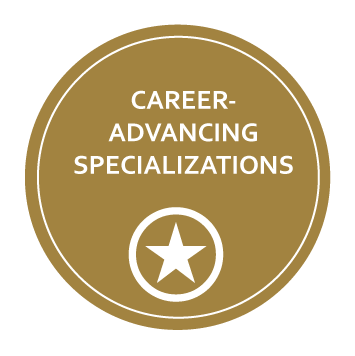
Practice-oriented business education & profile-building specializations
SPECIFIC KEY AND FUTURE SKILLS
The Bachelor study program in Management offers a compact, practice-oriented basic education in economics. In addition, there is a strong focus on teaching key and future skills tailored to the respective branches of study (6 German-language and 2 English-language) from the first semester onwards. This profile-building specialization accounts for more than half of the total course content. Current topics such as sustainability, digitality, internationality and diversity are an integral part of many modules.
PRACTICAL RELEVANCE
The high practical relevance of the study program is ensured by close cooperation with regional, national and international companies as well as the use of experienced lecturers from industry, business and institutions, who bring current topics and new developments from professional practice into the study program or can also be experienced in excursions. The students' transfer skills are strengthened by working on specific and current practical tasks.
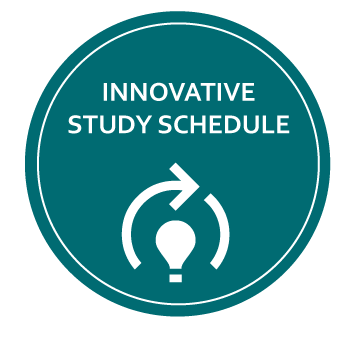
Innovative study time model - perfect match of studying, working & living
We support part-time students with an innovative study time model: the modules per semester are implemented in sequences. This enables focused learning on the module content. The module is completed immediately after the end of the module sequence by means of an examination. This leads away from the parallel learning of a lot of content with a high mental load, towards focused work on individual content and thus more effective learning.
This study model promotes a high proportion of varied classroom teaching, which takes place in sequences on only a few weekends per semester (Thurs: 4:50 - 8:10 pm, Fri: 9:20 - 4:50 pm, Sat: 8:30 - 4:00 pm) and is supplemented by interactive online teaching units (depending on the module, Tue and/or Wed evenings: 5:50 - 9:00 pm or Sat: 8:30 - 4:00 pm). In order to ensure planning security for the usually tight time budget, the weekends of the course are already fixed two years in advance.
STUDY REQUIREMENTS
For the part-time degree program, two years of professional experience - ideally in a relevant field - and/or at least 50% of the time in a relevant profession is recommended. Relevant professional experience or relevant professional activity during the degree program is generally credited towards the ‘Professional Internship’ module in the 6th semester.
SEMESTERÜBERBLICK ZU DEN LEHRTERMINEN BEI STUDIENSTART IM WINTERSEMESTER 25/26
Faculty and Staff - Digital Tax & Accounting
FH-Prof. Mag. Dr.
Thomas Fenzl
FH-Prof.in Mag.a
Hermine Bauer
Mag.
Michaela Rosenwirth
MMag.a
Julia Ebenberger-Fidebauer
Evelyn Eigner
Romana Pechac
Rita Maria Elsa Marak, BA MA
Mag.a
Margit Schager
MMag.a
Jirina Egarter, MSc
Mag.
Georg Jeschke
Mag.a (FH) Dr.
Marika Gruber
Janet Brown, MA MA
FH-Prof. Mag. Dr. rer. soc. oec.
Stefan Dreisiebner
FH-Prof.in Mag.a Dr.in
Ursula Liebhart
FH-Prof.in Dr.in
Eithne Knappitsch
Mag.
Wolfgang Leitner
FH-Prof. MMag. Dr.
Florian Oppitz
Dr.
Anna Hauser-Oppelmayer, Bakk. MSc
FH-Prof.in Mag. (FH) Dr.in
Birgit Aigner-Walder
Dipl.-Ing.
Martin Stromberger
FH-Prof. Dipl.BW FH
Stefan Nungesser
FH-Prof. Mag. Dr.
Dietmar Sternad, BSc MBA
FH-Prof.in MMag.a Dr.in
Kathrin Stainer-Hämmerle
Mag.a
Andrea Gaggl
Dr. rer. soc. oec.
Cornelia Mayr, BA
FH-Prof.in MMag.a Dr.in
Vera Seyer
Verena Fink, B.A. MA
Jessica Pöcher, B.A.
DI
Wolfgang Almer
Hon.-Prof. (FH) Mag.
Günter Bauer
Pierre Bechler, BSc MA
Mag.
Thomas Bodner
Mag.a Dr.
Barbara Covarrubias Venegas
Mag.
Verena Cozelenka
Mag.a Dr.in
Daniela Ebner
Caro Frank
MMag.a
Sabine Friesser
Mag.a
Marlies Gatterbauer
Dr.
Bernhard Glawitsch
Christina Graf, BA
Mag.
Christof Gruber-Harrich
Mag.a
Ute Hammerschall
MMag. Dr.
Meinrad Höfferer
Mag.
Christian Inzko
Dr. iur. Dr.
Ulrich Kraßnig, LL.M.
MMag.a
Eva Maria Köffler-Malliga
Mag.
Hannes Mahl
Dr.
Stefan Mitterdorfer
Mag.
Richard Petz, BSc
MMag.
Florian Pibal, Bakk.
Peter Plaikner
Mag. Dr.
Manfred Prisching
DI
Reiner Rabensteiner
Barbara Rauscher, MA
Mag.a phil.
Katharina Rodgers
DI
Wolfgang Schurian, BA
Dr.in
Barbara Stampf
Mag.a
Eva Maria Stefaner, BA
Hon.-Prof.in (FH) MMag.a Dr.in
Gabriele Stoiser
Mag.
Bernhard Venhauer
Steuerberaterin Mag.
Eva Maria Winkler
Kathrin Wutej, BSc MSc
Dr.
Anna Zinenko
Campus & Arrival
Villach
The Villach region combines tradition, cosmopolitanism and quality of life with the advantages of an innovative business location. Villach, a small town with about 60,000 inhabitants, is an international high-tech location with groundbreaking cooperation between science and industry and is also increasingly developing into a start-up town.
Situated directly at the intersection of three cultures, Villach, situated on the Drava river, is an important traffic junction in the Alps-Adriatic region. This special geographical location and the beautiful landscape around Villach and in the federal state of Carinthia have made the region a popular holiday destination for generations, further beyond the borders. The drinking water quality of the lakes and the particularly clean air make Villach and its surroundings an environmental paradise.
In addition to its geographical advantages, Austria also leads the world in terms of its social and health care system and is considered a particularly safe, prosperous and liveable country.
Despite the above-average prosperity and the comprehensive state social benefits, Villach compares favourably with many international destinations. The "small town bonus" comes into its own here and makes everyday life affordable.
Explore Campus Villach on a 360° Tour.
Make a virtual walk through the Science & Energy Labs – T10.
Motorway exit Wernberg, then on the B 83 approx. 2 km in the direction of Villach, after the Villach town sign the B83 passes under the A2 motorway, and then immediately right the first exit in the direction of MAGDALENEN SEE. Following the signs for Magdalenen See, the road leads through a small wooded area, always follow the road, after an S-curve past Magdalenen See (left) always straight ahead, cross the southern railway line and go uphill directly into the centre of St. Magdalene. Turn right at the top of the hill, down the road, the grounds of the technology park are already visible to the south, the chimney of the combined heat and power plant, and directly in the sharp right-hand bend turn left onto the grounds of the technology park.
Motorway exit Villach/Ossiacher See, then approx. 2 km in the direction of Villach, on the right is Gasthof Seehof, on the left is Lake Vassach, continue on the B33 left in the direction of east, Wernberg, Klagenfurt, always follow the B33, after approx. 4 km turn right in the direction of Magdalenen See. The road leads through a small forest, always follow the road, after an S-curve past Lake Magdalenen (left) always straight ahead, cross the southern railway line and go uphill directly into the centre of St.Magdalen. Turn right at the top of the hill, down the road, the grounds of the technology park are already visible to the south, the chimney of the combined heat and power plant, and directly in the sharp right-hand bend turn left onto the grounds of the technology park.
The bus company Dr. Richard runs from Villach city to the FH in about every 15 minutes. The timetables are coordinated with the timetables of the ÖBB.
Contact
Europastraße 4
9524 Villach, Austria
+43 5 90500 7700
villach[at]fh-kaernten[dot]at
Explore Campus Villach on a 360° Tour.

